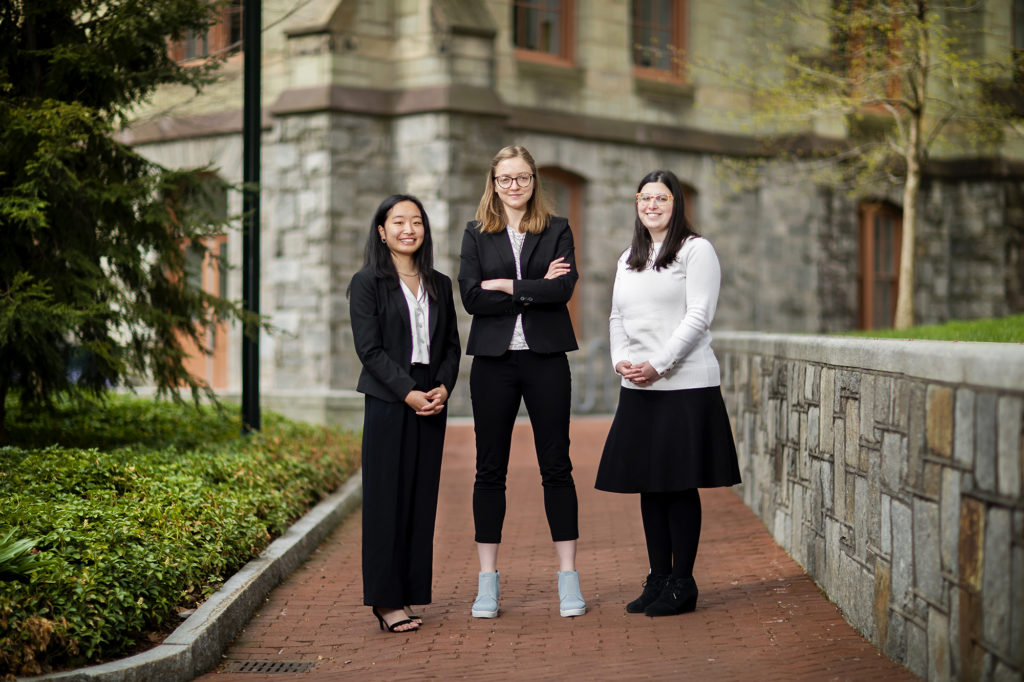
The President’s Sustainability Prize (PSP) was awarded for the first time in 2022 to three groups with diverse takes on building a cleaner, healthier, more livable planet.
Like the Penn President’s Engagement Prizes, which have been awarded since 2015, and the President’s Innovation Prizes, first given in 2017, the Sustainability Prizes recognize individuals and groups with an ambitious proposal for a post-graduation project that centers environmental or social resilience and will make a positive, lasting difference in the world. Each Prize-winning project receives $100,000, and team members each receive a $50,000 living stipend.
Last year, three fourth-year students and two December 2021 graduates received the inaugural Sustainability Prizes: one developing a device to trap microplastics released during laundering; another to help people on food stamps transform raw ingredients into complete, healthy meals; and a third to enhance the sustainability and welfare practices of the fishing industry.
“I am amazed by the remarkable progress of Baleena, The Community Grocer, and Shinkei Systems,” says President Liz Magill. “All three game-changing projects were created with an innovative and sustainable mindset, one that is so central to the Penn ethos. If these Prize winners can accomplish this much in less than a year, it is breathtaking to imagine what’s in store for their future.”
After a year of heads-down work, Penn Today checked in with the prize winners to learn how their visions are coming to life.
Cleaner waters
Nearly eight months have passed since President’s Sustainability Prize winners Sarah Beth Gleeson, Shoshana Weintraub, and Julia Yan, all materials science and engineering graduates from the School of Engineering and Applied Science launched Baleena, their startup geared toward reducing waterway pollution.
During this time, the team has formed new partnerships with major outdoor brands and nonprofits, participated in several pitch contests, and learned much about product development as they scaled their venture.
“It’s been a thrill connecting with more people in sustainability and finding new mentors,” says Yan, the company’s CEO. “On top of that, we’ve done more fundraising through accelerators, which have really helped shape our product’s development.”
Baleena’s innovative device captures microfibers—tiny particles shed from synthetic clothing—in washing machines before they enter our waterways. Their initial design was a tennis ball-sized porous sphere that could be tossed into washing machines and collect microfibers during laundry cycles.
After tests, however, they discovered a better way to catch these pollutants, Weintraub, Baleena’s chief technology officer, explains. “We found that the ball’s movements were limiting its efficacy. So, by attaching an enclosure to the drum, we’ll be able to gather microfibers better.”
The team has also learned more about the consumer-facing aspects of bringing a product to market. “What we’re building has a value proposition based on the consumer’s goodwill,” says Gleeson, chief operating officer. “Raising awareness of microfiber pollution to the general public is imperative.”
The team has become increasingly involved in local efforts to do just that around Philadelphia, participating in waterway cleanups and joining local coalitions pushing for a circular economy to learn more about the desires of an eco-conscious consumer base.
Looking ahead, the Baleena team strives to curtail microfiber waterway pollution and broaden their impact as they close the loop by recirculating captured textile waste.
Read more about the other President’s Sustainabilty Prize winners at Penn Today.
